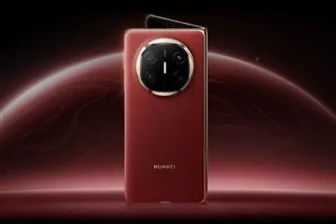
Breakthrough Study Reveals High-Intensity Focused Ultrasound is a Game-Changer for Prostate Cancer Treatment
2024-12-12
Author: Sarah
Breakthrough Study Reveals High-Intensity Focused Ultrasound is a Game-Changer for Prostate Cancer Treatment
Recent findings from the groundbreaking HIFI trial (NCT04307056) have shed new light on the effectiveness of high-intensity focused ultrasound (HIFU) in treating localized prostate cancer. This prospective, nonrandomized study has demonstrated that HIFU offers comparable treatment-free survival rates to radical prostatectomy (RP), while significantly minimizing functional impairments.
The results were first presented at the 2024 American Urological Association Annual Meeting and subsequently published in the prestigious journal, European Urology. Dr. Pascal Rischmann, a prominent urologist involved in the study, emphasized that the HIFI study’s publication marks a pivotal moment in prostate cancer treatment, particularly with the rise of robotic HIFU technology, which is revolutionizing care for early-stage prostate cancer patients.
Data from the study highlights that 90% of patients treated with HIFU were free from subsequent definitive treatments after 30 months, compared to 86% in the radical prostatectomy group. The results remained consistent even among those with intermediate-risk disease, suggesting that HIFU could potentially become a preferred treatment option for many men seeking less invasive alternatives.
When it comes to functional outcomes, the study found that only 29% of HIFU patients experienced urinary continence deterioration after one year, compared to 44% of patients who underwent surgery. Additionally, HIFU patients reported better erectile function, as indicated by a smaller decrease in their International Index of Erectile Function-5 scores.
Safety was also a key focus of the trial. Adverse events occurred in 23.9% of the HIFU cohort compared to 15% in the surgery group, with urinary retention being the most common issue for HIFU patients. In contrast, radical prostatectomy patients faced operative injuries and urinary retention as the primary complications.
Importantly, both groups reported no instances of prostate cancer-specific mortality or distant metastases during the study period. Over the course of the trial, 3,328 patients were enrolled across 46 clinical sites, with 1,967 receiving HIFU treatment and 1,361 opting for radical prostatectomy.
Interestingly, the median age of patients in the HIFU group was significantly older than that of the surgery group—74.7 years compared to 65.1 years. This age discrepancy and the study's nonrandomized design warrant cautious interpretation of the findings. Experts call for longer follow-up studies and further evaluation of focal treatments to confirm these promising results.
In summary, the HIFI study presents compelling evidence that HIFU can deliver comparable treatment outcomes as radical prostatectomy, while additionally preserving patient quality of life. As awareness of this innovative treatment grows, more men may have the opportunity to explore HIFU as a viable option for their prostate cancer care.
Stay tuned for more updates on advancements in prostate cancer treatments that could transform patient experiences and outcomes!




 Brasil (PT)
Brasil (PT)
 Canada (EN)
Canada (EN)
 Chile (ES)
Chile (ES)
 España (ES)
España (ES)
 France (FR)
France (FR)
 Hong Kong (EN)
Hong Kong (EN)
 Italia (IT)
Italia (IT)
 日本 (JA)
日本 (JA)
 Magyarország (HU)
Magyarország (HU)
 Norge (NO)
Norge (NO)
 Polska (PL)
Polska (PL)
 Schweiz (DE)
Schweiz (DE)
 Singapore (EN)
Singapore (EN)
 Sverige (SV)
Sverige (SV)
 Suomi (FI)
Suomi (FI)
 Türkiye (TR)
Türkiye (TR)